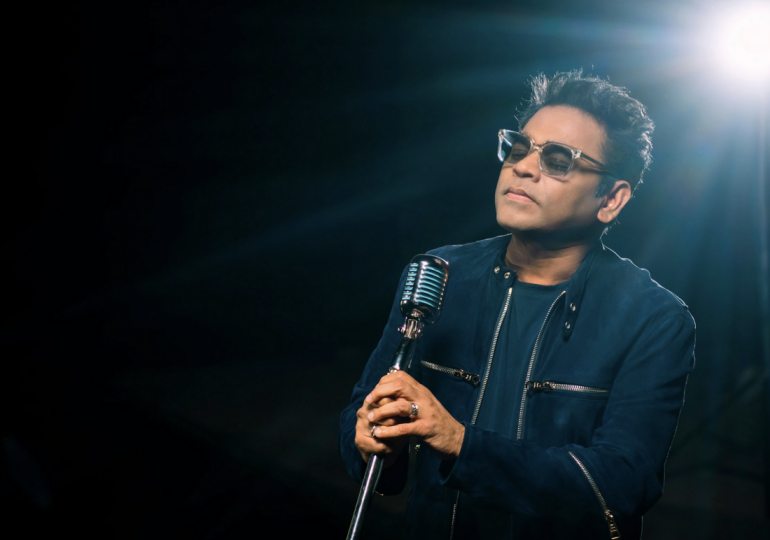Address
304 North Cardinal St.
Dorchester Center, MA 02124
Work Hours
Monday to Friday: 7AM - 7PM
Weekend: 10AM - 5PM

When a humble jingle composer from Chennai walked onto the Academy Awards stage in 2009 to collect two Oscars in a single night, the world witnessed the culmination of an extraordinary journey that began three decades earlier. A.R. Rahman, often called “the Mozart of Madras,” has not only redefined contemporary Indian music but has fundamentally transformed the landscape of global music development through his revolutionary approach to music direction. With six National Film Awards, two Academy Awards, two Grammy Awards, a BAFTA, and a Golden Globe to his name, Rahman stands as the most decorated music director in Indian cinema history, having sold over 200 million albums worldwide and becoming one of the world’s all-time top-selling recording artists.
Born as A.S. Dileep Kumar on January 6, 1967, in Madras (now Chennai), Rahman’s journey into music direction began under tragic circumstances when his father, R.K. Sekhar, a prominent composer for Malayalam films, died when Rahman was just nine years old. This early loss forced the young Rahman to step into the world of professional music, playing piano to support his family while barely a teenager. Despite dropping out of school, Rahman’s dedication to his craft never wavered—he pursued Western classical music qualification through Trinity College, London, laying the foundation for his unique fusion style that would later revolutionize music direction.
Rahman’s entry into film music direction came through a serendipitous meeting with director Mani Ratnam in 1991 at a ceremony where Rahman was receiving an award for his work on a coffee advertisement. This encounter would prove pivotal, as Ratnam persuaded the reluctant jingle composer to venture into film music direction. Their collaboration on the 1992 Tamil film “Roja” marked Rahman’s debut as a music director and instantly established him as a force to be reckoned with in the industry.
Rahman’s approach to music direction broke conventional boundaries from his very first film. The “Roja” soundtrack became an instant sensation, earning him the National Film Award for Best Music Direction at the 40th National Film Awards—a first for any debutant music director. This was just the beginning of an unprecedented streak of success that would see Rahman accumulate 7 National Film Awards, 15 Filmfare Awards, and 18 Filmfare Awards South—a record for any Indian composer.
The music director’s international breakthrough came with “Slumdog Millionaire” in 2008, where his innovative music direction earned global recognition. Rahman’s score captured the frenzied pace of life in Mumbai’s underclass and dominated the awards circuit in 2009, collecting a BAFTA Award for best music, a Golden Globe, and an Academy Award for best score. The film’s anthem “Jai Ho,” co-created with lyricist Gulzar, became a global phenomenon, earning Rahman and Gulzar the Academy Award for Best Original Song.
Rahman’s music direction extends far beyond individual accolades. By 2004, he had sold more than 150 million records of his film scores and soundtracks worldwide, establishing himself as one of the world’s all-time top-selling recording artists. His signature tune for Airtel became the world’s most downloaded mobile music with over 150 million downloads, demonstrating his influence in the digital music era.
What sets Rahman apart in music direction is his ability to seamlessly blend Eastern classical music with electronic sounds, western orchestration, and world music genres. His landmark compositions for films like “Bombay,” “Dil Se,” “Taal,” “Lagaan,” and “Jodhaa Akbar” showcase a music director who refuses to be confined by genre boundaries. Each project reveals new dimensions of his artistry, from the patriotic fervor of “Vande Mataram” to the spiritual depth of his Sufi compositions.
As of 2025, Rahman continues to push the boundaries of music direction with an impressive slate of upcoming projects. His current and forthcoming works include major films like “Thug Life,” “Chhaava,” “Lahore 1947,” and “Ramayana,” spanning multiple languages and genres. In November 2024, Rahman received the XTIC Award for Innovation in recognition of his VR film “Le Musk,” showcasing his pioneering work in immersive music experiences.
Rahman’s vision for music development extends beyond traditional film scoring. He founded the KM Music Conservatory in Chennai, establishing a world-class institution that trains the next generation of musicians in contemporary music direction techniques. Through initiatives like “Ta Futures,” Rahman is working to curate and celebrate the diverse sounds of Tamil Nadu, demonstrating his commitment to preserving and evolving regional musical traditions while maintaining global relevance.
His humanitarian work through music direction includes composing for charitable causes, serving as global ambassador for WHO’s Stop TB Partnership, and creating music that raises awareness for social issues. In 2024, Rahman was named Honorary President of Trinity Laban, further cementing his role as a leader in global music education and development.
A.R. Rahman has fundamentally transformed what it means to be a music director in the modern entertainment industry. His innovative fusion of traditional and contemporary elements, combined with his mastery of technology and global musical languages, has created a new paradigm for music direction that transcends cultural and geographical boundaries. As he continues to explore new frontiers in music development, Rahman remains the definitive example of how visionary music direction can reshape not just an industry, but the very way the world experiences and appreciates music.